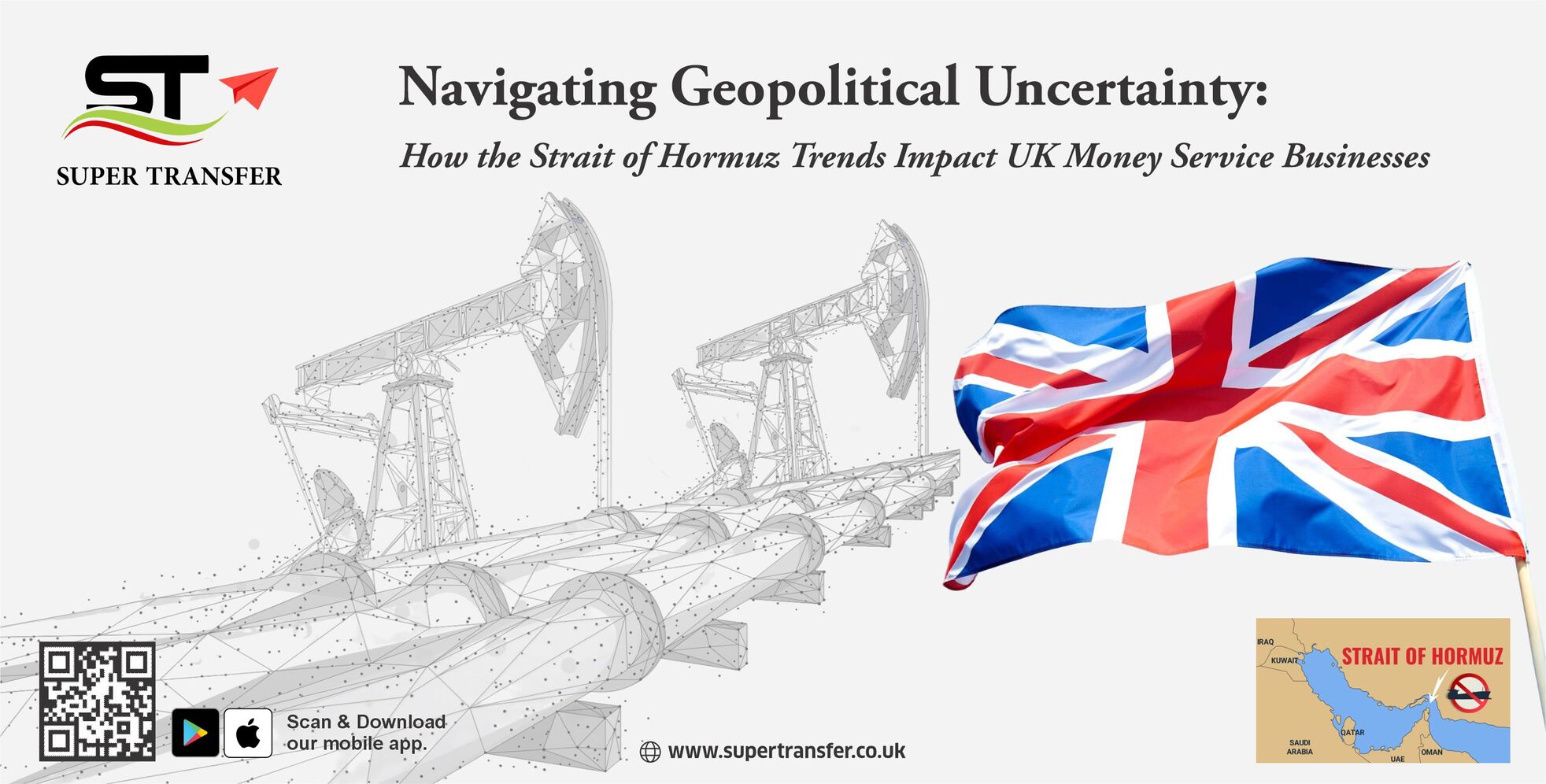
Navigating Geopolitical Uncertainty: How the Strait of Hormuz Trends Impact UK Money Service Businesses
A deep dive into the ripple effects of regional tensions on trade, remittances, and financial compliance across borders.
In the world of global finance, what happens thousands of miles away can have profound effects at home? One such hotspot is the Strait of Hormuz—a narrow waterway through which roughly a fifth of the world’s oil supply flows. Any geopolitical tremor here, from maritime conflicts to diplomatic standoffs, doesn’t just disrupt shipping lanes—it stirs volatility across global markets, including the UK’s financial services sector.
And for money service businesses (MSBs), especially those supporting diaspora remittances, these tensions call for a sharper lens on risk, resilience, and regulatory clarity.
The Impact on Global Trade and Remittance Flows
The Strait of Hormuz serves as a lifeline for international trade, connecting energy-rich Gulf nations with global consumers. Disruptions here quickly lead to oil price hikes, inflationary pressures, and in some cases, restricted flow of goods and capital. These conditions have a knock-on effect on remittance services, especially those catering to migrant populations who rely on affordable transfers to support families in regions like Nigeria, the Middle East, and South Asia.
For UK MSBs, this adds another layer of operational complexity. Unpredictable exchange rate swings, bank de-risking, and increased transaction scrutiny can raise costs and delay settlements. When trust and speed are key to customer satisfaction, even subtle shifts in the geopolitical landscape carry outsized consequences.
Platforms like Super Transfer help bridge these gaps by offering secure, fast, and transparent money transfers. Whether sending funds to loved ones via Super Transfer to Nigeria or managing cross-border payments during turbulent times, dependable service makes all the difference.
Enhanced Risk Management and AML Compliance Measures
Geopolitical risk isn’t just about trade—it's also a compliance concern. Escalating tensions often prompt regulators to issue sanctions, tighten anti-money laundering (AML) frameworks, or impose additional scrutiny on specific corridors.
For UK-based MSBs, maintaining robust AML compliance becomes even more critical. This includes real-time risk monitoring, enhanced customer due diligence, and keeping pace with constantly shifting sanction lists and watch lists.
The strain on smaller service providers can be immense, but it’s also an opportunity to strengthen internal controls, adopt smarter compliance tools, and instil customer confidence. In these times, providing clients with clear assistance—like the Help section on Super Transfer—is not just good practice, it’s essential business ethics.
The Regulatory and Financial Industry Outlook
As geopolitical risks escalate, regulators in the UK and abroad continue to respond by reinforcing financial safeguards. The Financial Conduct Authority (FCA) has pushed for stricter reporting, while international bodies urge real-time traceability of remittance flows.
For MSBs, this means a shift toward more agile technologies—AI-powered fraud detection, block chain-based settlement protocols, and scalable compliance platforms. But the heart of the matter remains deeply human: ensuring that individuals, especially immigrants and global workers, have continued access to reliable and cost-effective financial services.
As we look ahead, the outlook is one of cautious innovation. While financial regulation tightens to address global uncertainties, businesses that invest in transparency, customer education, and digital resilience will thrive.
In Conclusion
The Strait of Hormuz may feel distant, but its geopolitical pulse beats through the arteries of our global financial system. For UK money service providers, it’s not just about reacting to shocks, but anticipating them—with empathy, efficiency, and integrity.
At its core, every remittance is more than money—it’s a promise. A promise to support family, to honour roots, to build bridges across borders. And no matter how stormy the global waters may get, that human promise must remain unwavering.
